
Patients with worsening heart failure who received colchicine, a common gout medication, had a survival rate of 97.9% compared with a 93.5% survival rate for patients who did not take colchicine.
A new study discovers a new potential treatment option for a condition affecting 6 million Americans.
Colchicine, a common gout medication, dramatically increased the survival rates of patients with worsening heart failure who were hospitalized, according to a recent University of Virginia (UVA) Health study. In individuals with an accumulation of cholesterol in their arteries, the researchers think colchicine might also lower the risk for heart attack and stroke.
More than 1,000 patients who were hospitalized at the University of Virginia Medical Center between March 2011 and February 2020 due to worsening heart failure had their records examined. Patients who took colchicine for a gout flare had a survival rate of 97.9%, as opposed to patients who did not receive colchicine, who had a survival rate of 93.5%.
The study was published in the journal Clinical Cardiology on April 28th, 2022.
“These results highlight the importance of novel inflammatory mechanisms in heart failure,” said Kenneth Bilchick, MD, MS, Professor of Cardiovascular Medicine and a clinical investigator at UVA. “The signal for benefit with colchicine in these patients was very impressive, and I expect that these findings will have quite a significant impact on clinical care in heart failure and future research for patients with this condition.”
“Heart failure is more than just a failure of the pumping function of the heart. There are other processes that are involved, especially during an acute hospitalization phase such as elevated inflammation and neurohormonal process. Many of the therapeutic agents for heart failure target neurohormonal pathways, but few if any target inflammatory pathways,” said Sula Mazimba, MD, MPH, a UVA School of Medicine researcher and cardiologist specializing in heart failure. “Colchicine is a medication that has anti-inflammatory properties that could potentially attenuate the heightened inflammation that we see in patients who are hospitalized with heart failure.”

Sula Mazimba, MD, MPH, is a heart failure expert at UVA Health and the UVA School of Medicine. Credit: UVA Health
Treating Gout and Heart Failure
Heart failure happens when the body’s ability to pump blood throughout the body fails. According to the American Heart Association, around 6 million Americans suffer heart failure, and the condition is responsible for more than 86,000 deaths each year.
Gout, a kind of arthritis characterized by a buildup of uric acid crystals in the joints, is common in patients with heart failure. Colchicine, steroids, and nonsteroidal anti-inflammatory drugs (NSAIDs) such as aspirin and ibuprofen are common treatments for gout, although steroids and NSAIDs are not typically given to heart failure patients due to their tendency to aggravate heart failure symptoms.
While colchicine is a well-established treatment for gout, the UVA research team believes the medication’s anti-inflammatory properties may also be key to improving outcomes for heart failure patients. They think that colchicine may modulate inflammation in the heart and blood vessels with the potential for improving outcomes, especially in the acute phases of heart failure hospitalizations.
Additional, larger studies to further explore colchicine as a potential treatment option for heart failure are needed, but the UVA researchers are encouraged by their initial findings.
“We’re very excited about these findings, especially given that colchicine is already a widely available medication,” said Mary E. Roth, PharmD, a researcher and cardiovascular clinical pharmacist at UVA Health. “If additional studies confirm the results, colchicine could be another tool we can utilize to improve the survival of our heart failure patients.”
The work was funded by the National Institutes of Health, grant R01 HL159945, and by the American Heart Association, grant 18TPA34170579.
Reference: “Association of colchicine use for acute gout with clinical outcomes in acute decompensated heart failure” by Mary E. Roth, Melissa E. Chinn, Steven P. Dunn, Kenneth C. Bilchick and Sula Mazimba, 28 April 2022, Clinical Cardiology.
DOI: 10.1002/clc.23830

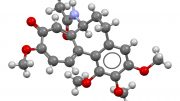
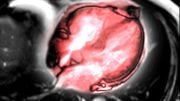


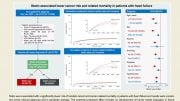
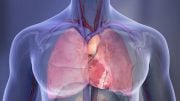
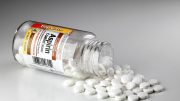
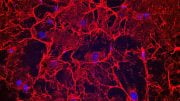
Be the first to comment on "A Common Medication Improves Survival for Heart Failure Patients"